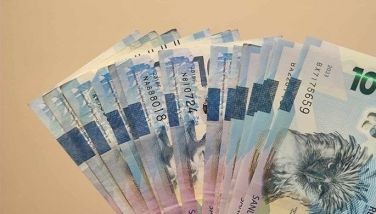Government to gain P200M under value-based excise tax

June 4, 2003 | 12:00am
The government may lose P1.34 billion in revenues from passenger cars under the value-based excise tax system, simulations by the Department of Finance (DOF) showed recently.
However, to make up for the revenue loss from passenger cars, the DOF projects a tax take of P1.54 billion from the six-to nine- percent tax to be imposed on the currently tax-exempt Asian utility vehicles (AUVs), resulting in a net revenue of about P200 million.
Industry sources, however, said the additional tax revenue of about P200 million would be at the expense of a zero growth for the AUV industry which is expecting a 50-percent drop in sales once the value-based excise tax system is passed into law.
The passage of the new excise tax system remains uncertain with only three more working days before Congress goes on a recess.
According to University of the Philippines (UP) School of Labor and Industrial Relations Dean Rene Ofreneo, the proposed value-based excise tax would only encourage the importation of passenger cars and could weaken the local assembly and car parts manufacturing industry.
Ofreneo said because of expectations of a value-based excise tax system, several local car assemblers have already started shifting to the importation of completely built-up (CBU) passenger cars which at present only account for 18 percent of total industry sales.
AUVs, on the other hand, account for around 43 percent of total industry sales.
However, to make up for the revenue loss from passenger cars, the DOF projects a tax take of P1.54 billion from the six-to nine- percent tax to be imposed on the currently tax-exempt Asian utility vehicles (AUVs), resulting in a net revenue of about P200 million.
Industry sources, however, said the additional tax revenue of about P200 million would be at the expense of a zero growth for the AUV industry which is expecting a 50-percent drop in sales once the value-based excise tax system is passed into law.
The passage of the new excise tax system remains uncertain with only three more working days before Congress goes on a recess.
According to University of the Philippines (UP) School of Labor and Industrial Relations Dean Rene Ofreneo, the proposed value-based excise tax would only encourage the importation of passenger cars and could weaken the local assembly and car parts manufacturing industry.
Ofreneo said because of expectations of a value-based excise tax system, several local car assemblers have already started shifting to the importation of completely built-up (CBU) passenger cars which at present only account for 18 percent of total industry sales.
AUVs, on the other hand, account for around 43 percent of total industry sales.
BrandSpace Articles
<
>
- Latest
- Trending
Trending
Latest






















